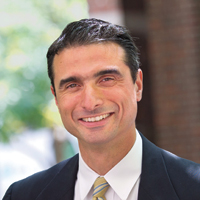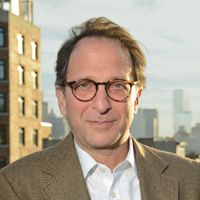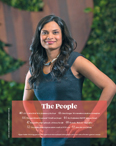Measuring Law’s Long Arm
As fellows at NYU Law, former federal enforcers assess the government’s reach.
Printer Friendly VersionThe way in which US power has applied abroad is “the great theme of American public law since 9/11,” says Michael Farbiarz, former co-chief of the Terrorism and International Narcotics Unit at the US Attorney’s Office for the Southern District of New York. “When we think about American power, we think about the military and the CIA, but what we see less frequently is that law enforcement works very closely with the national security apparatus.”

Michael Farbiarz
The list of cases Farbiarz has prosecuted or supervised reads like a capsule history of this shift: US v. Abu Ghayth, an Osama bin Laden son-in-law who was convicted on terrorism charges; US v. Ghailani, a Guantánamo detainee convicted for his role in the US embassy bombings in Kenya and Tanzania; and US v. Muse, the first piracy case tried in a US court in more than 100 years. But Farbiarz also knows that the application of US law overseas raises “immensely consequential questions.”
In July, Farbiarz began researching possible answers as a senior fellow at both the Center on Law and Security and the Center on the Administration of Criminal Law. “I look forward to examining and reexamining issues that I’ve been professionally steeped in from a different perch and a different perspective,” he says.

Andrew Weissmann
He’ll be in good company: Already examining similar issues is Andrew Weissmann, former general counsel for the FBI (and before that director of the Enron Task Force), who last October joined the Law School with the same joint appointment. Both men have taught or will teach National Security Law. Farbiarz will also teach National Security Law: Transnational Exercises of American Power, and Weissmann will teach both Criminal Procedure and Judging National Security.
Weissmann is also continuing work on three research projects. The first is an article about whether the “public safety exception” to the Fifth Amendment would also apply to the Sixth Amendment.
His second project examines documents declassified in the wake of the Edward Snowden leaks to determine whether they were properly declassified—and properly classified in the first place. Since the government usually only declassifies large amounts of documents at once after a certain amount of time has passed, “there’s never been an instance where a bulk set of data has been declassified like this,” says Weissmann.
Weissmann’s third project will essentially ask, “What qualifies as a search or seizure under the Fourth Amendment?” When critics discuss the NSA’s telephone metadata program, they often decry the outcome of the 1979 Supreme Court case Smith v. Maryland, which held that telephone company customers had no legitimate expectation of privacy in the numbers they dialed. But “what everyone who has been critical of the NSA telephone metadata program ignores is that the government didn’t go into the telephone company and seize the information; it went to court to get a court order,” Weissmann says. “That’s not necessarily a search or seizure—it’s like a subpoena, and the article will examine whether the Fourth Amendment should apply to such government actions.”
This take on privacy isn’t common in legal academia. “Both Andrew and Michael are coming from senior positions in government, so they might be more predisposed to believe there’s some truth to the government line than other scholars,” says Samuel Rascoff, associate professor of law and faculty director of the Center on Law and Security. “But neither one is the type to be drinking the Kool-Aid,” continues Rascoff, “so they also know where the government is on less solid ground.”
Giving both men a chance to think about the issues is what the fellowships promise. “The model we have is to bring in people who have had top-notch government careers who want some time to reflect on that service in written projects while participating in the academic life of the Law School,” says Rachel Barkow, Segal Family Professor of Regulatory Law and Policy and faculty director of the Center on the Administration of Criminal Law.
That’s exactly what Weissmann and Farbiarz plan to do. “At the bureau, your life often involves the best decision that can be made in seven minutes,” Weissmann says. “It’s wonderful to have time, and smart people with whom to think through a problem.”
—
